The NHL's Biggest Contracts
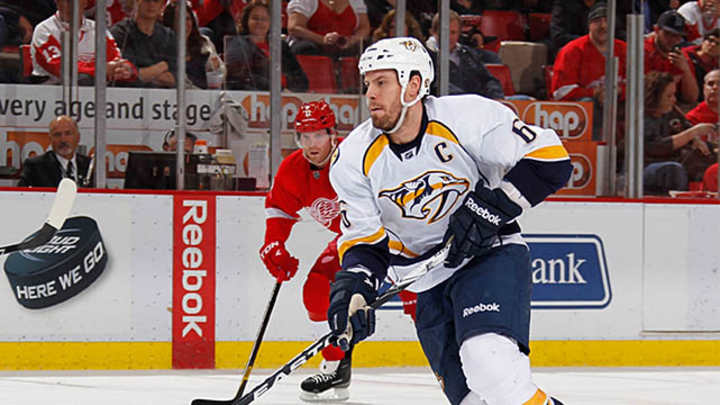
The NHL's Biggest Contracts
Shea Weber

After the All-Star and two-time Norris Trophy finalist, a restricted free agent, signed a whopping offer sheet with Philadelphia, Nashville had no choice but to match it after losing defenseman Ryan Suter to Minnesota. Weber's deal is heavily front-loaded with an immediate $13 million signing bonus followed by a $1 million salary for 2012-13. Another $13 million bonus is due in July 2013 and Weber will receive $80 million of the contract's total during its first six seasons. Though Weber did not get a no-trade clause, it's likely the Predators locked up their captain for the rest of his career with the second largest contract in the history of the NHL. To see where it stands in the spectrum of mega-deals, here's a look at other notable blockbusters.
Ryan Suter and Zach Parise
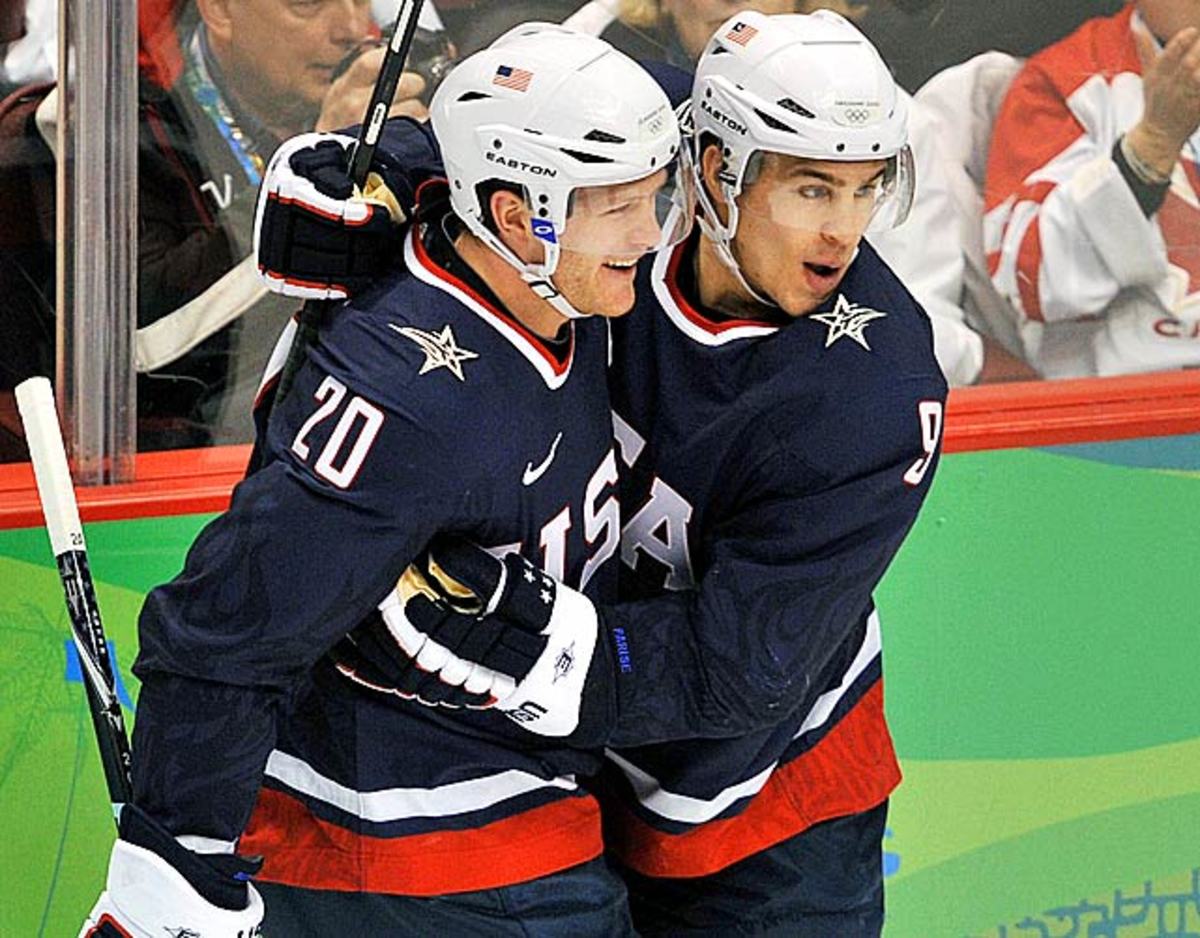
The Wild landed not one but both of the NHL's top prizes in free agency, defenseman Ryan Suter signing forward Zach Parise and. Drafted 17th overall by New Jersey in 2003, Parise produced 194 goals and 216 assists in 503 career games, scoring 30-plus goals five times. Suter spent all seven of his NHL seasons with the Nashville Predators after being selected with the seventh pick in the 2005 draft. The All-Star defenseman reached a career-highs in points in 2011-12, with 7 goals and 39 assists. The breakdown of the contracts is exactly the same, with both players getting $12 million in each of their first two years. The deals then go down in value, with each making $1 million in both 2023-24 and 2024-25.
Jordan Staal
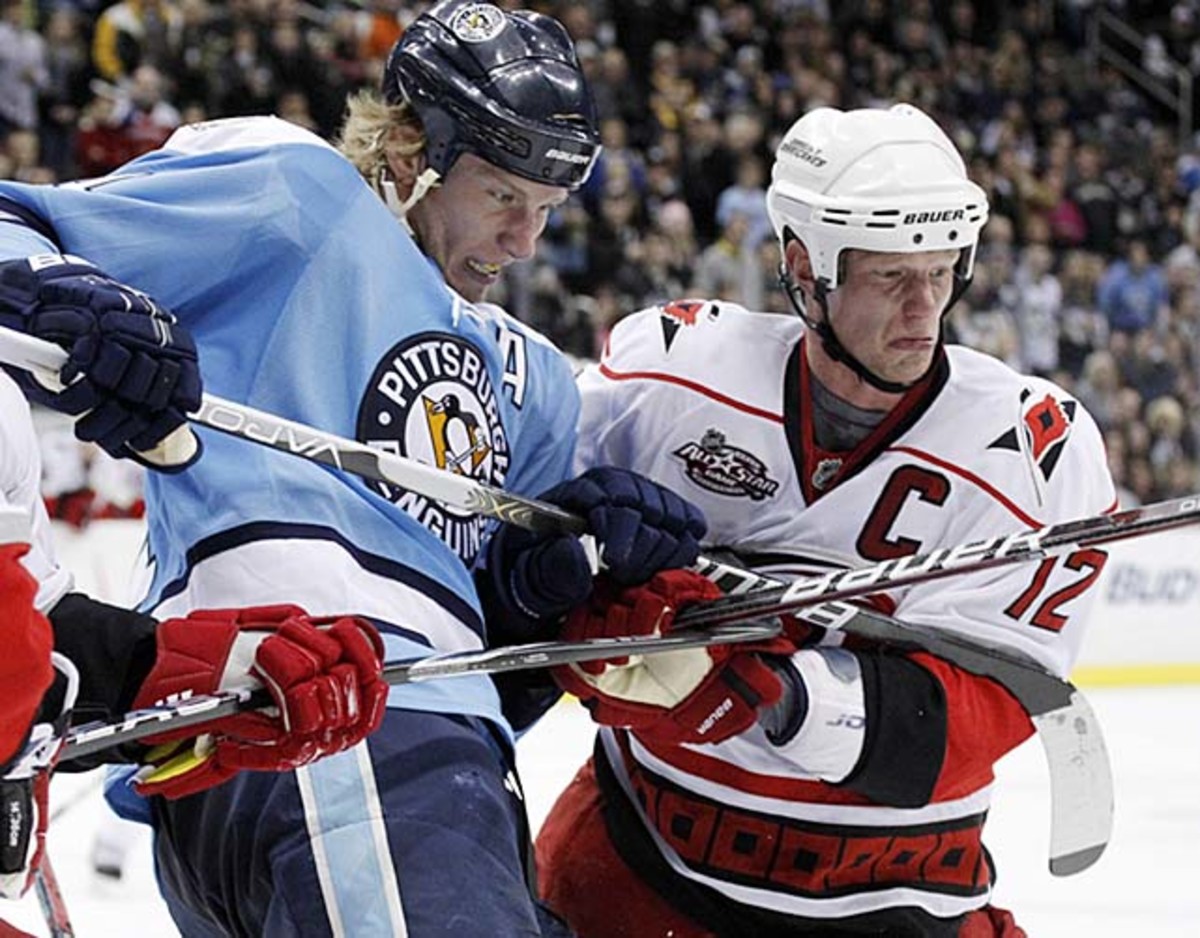
After turning down a 10-year offer by the Penguins, the 23-year old center (left) joined his older brother Eric (right) in Carolina after being traded on opening night of the 2012 NHL Draft for center Brandon Sutter, defensive prospect Brian Dumoulin, and the eighth overall pick (defenseman Derrick Pouliot). On July 1, Jordan signed a 10-year, $60 million deal with the Hurricanes that kicks in during the 2013-14 season.
Sidney Crosby
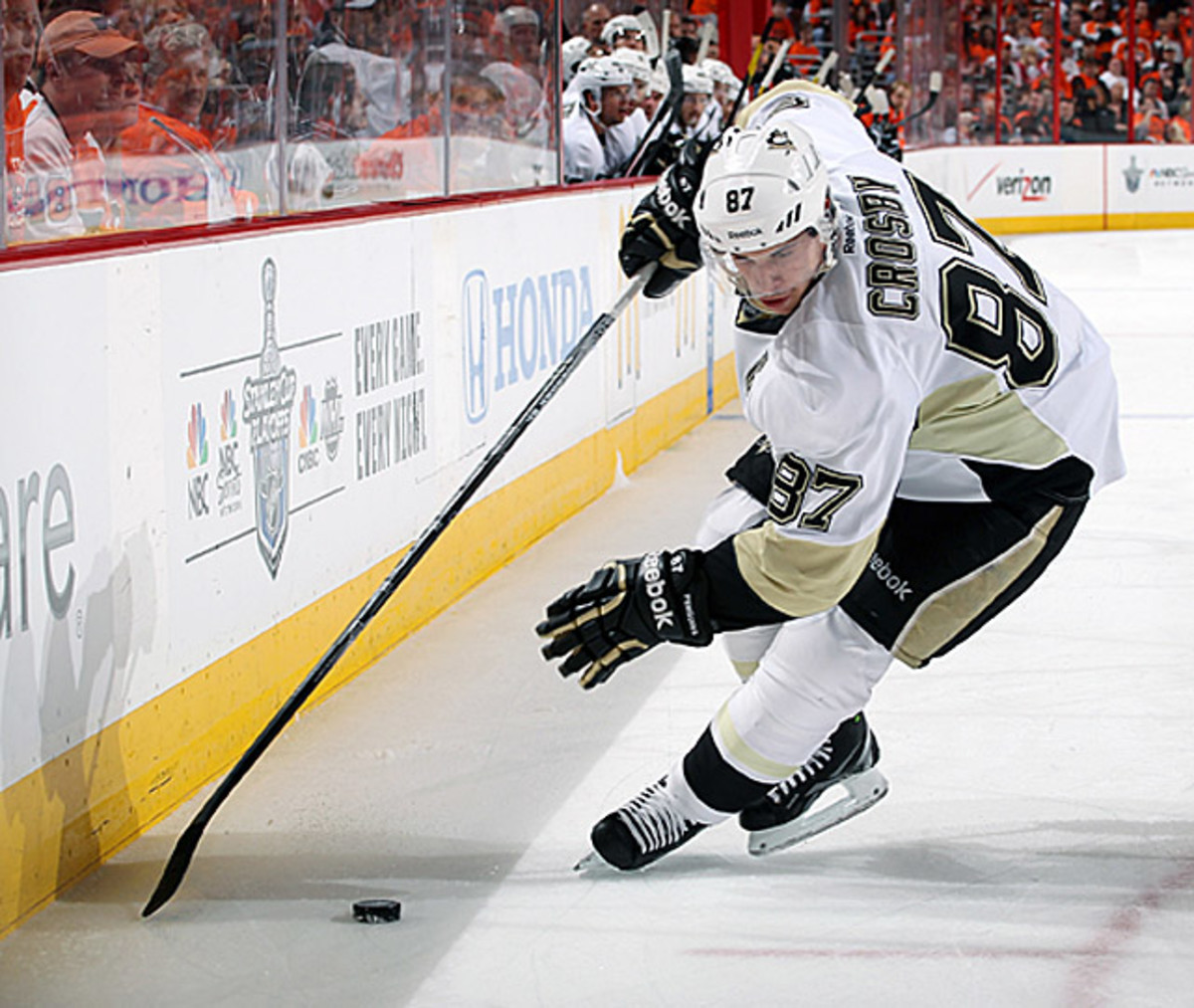
Losing their superstar captain to a concussion for the better part of 18 months did not deter the Pittsburgh Penguins from giving him an extension deal in July 2012 that will keep him in black, white and gold until 2025. Crosby had 223 goals and 386 assists in seven seasons, leading the NHL with 120 points in 2006-07 and 51 goals in 2009-10. He added 90 points in 68 playoff games, including a league-high 15 goals during Pittsburgh's run to the 2009 Cup.
Jonathan Quick
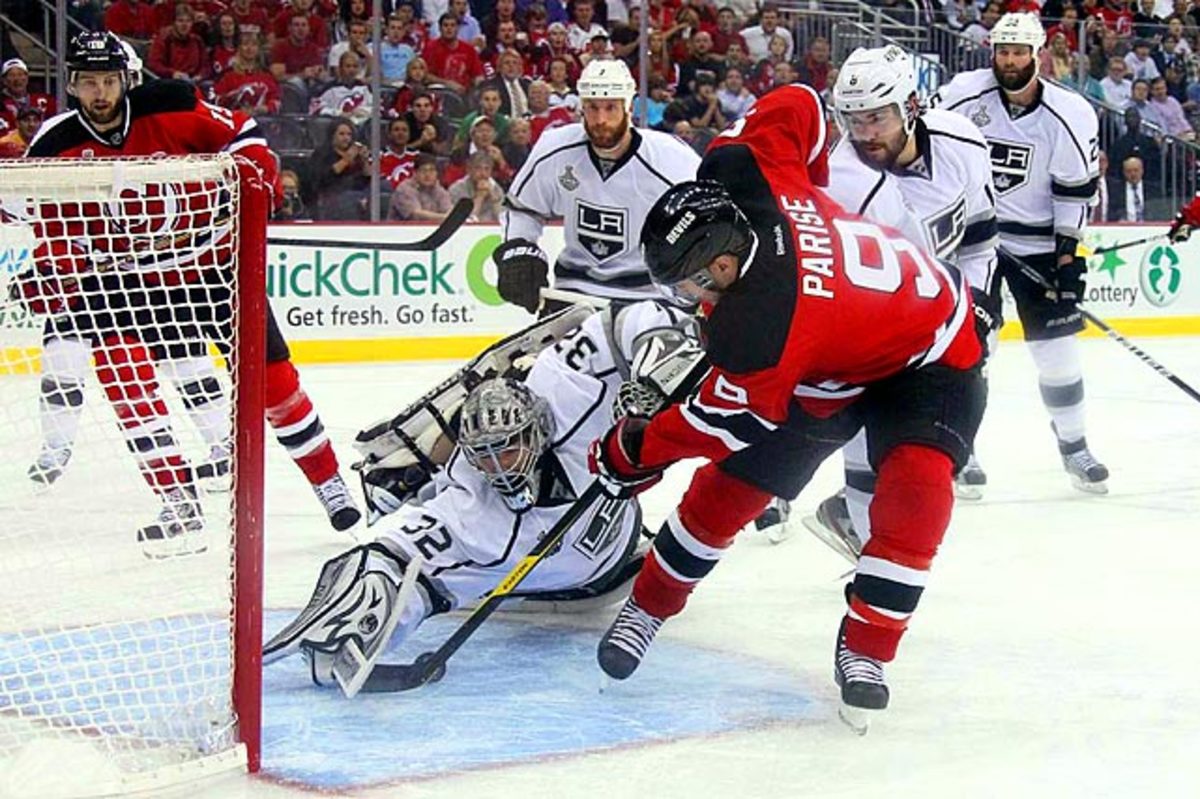
The 26-year-old netminder blossomed into an All-Star during the 2011-12 season while backstopping the Kings all the way to their first Stanley Cup, earning the Conn Smythe Trophy as playoff MVP. A workhorse, Quick made a team-record 72 appearances during the regular season and was fresh enough by spring to allow only 29 goals in 20 postseason matches. He finished the campaign as the first Kings netminder to win 30 or more games in three consecutive seasons.
Ilya Bryzgalov
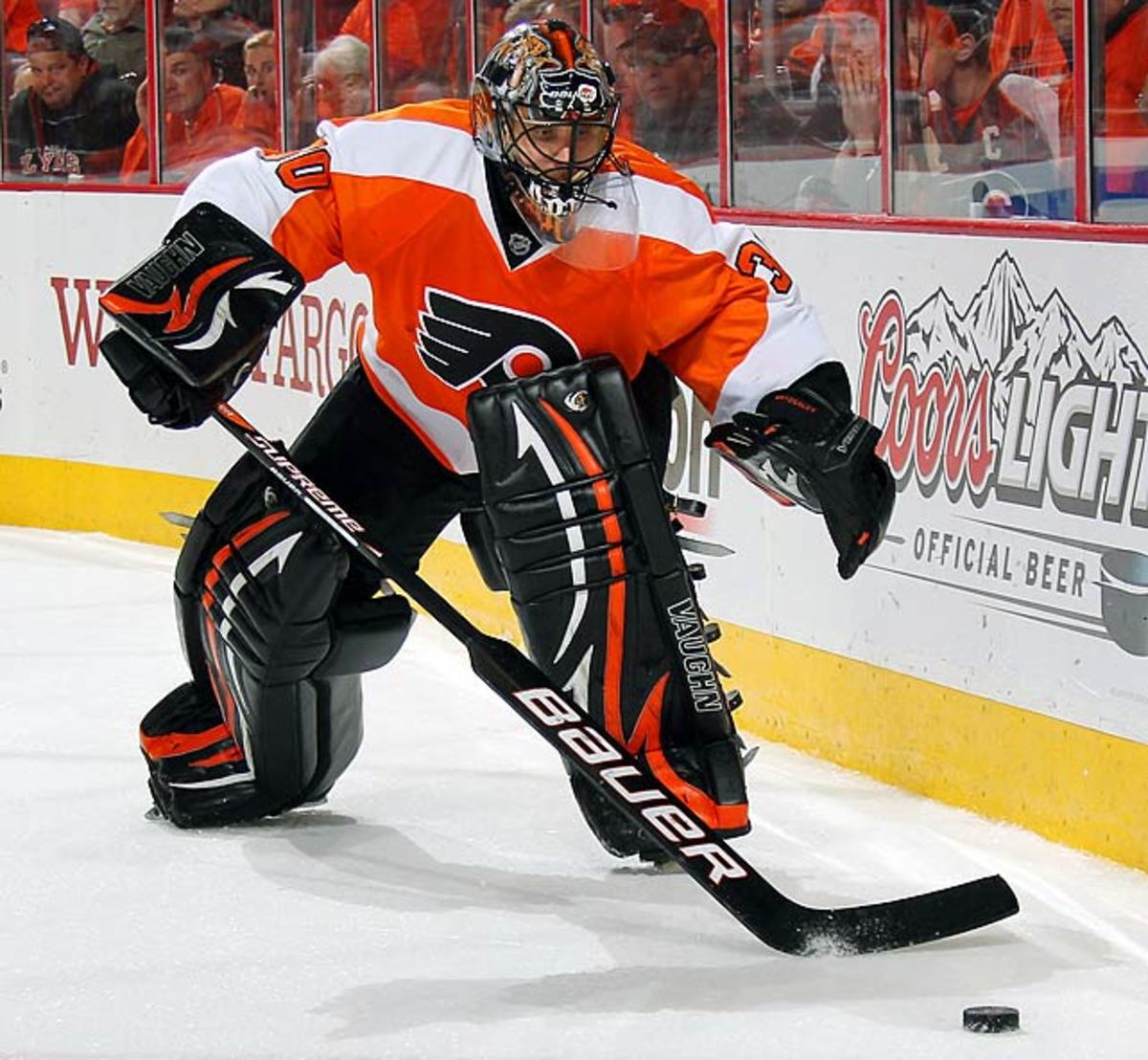
The Flyers' eternal search for a reliable, championship-caliber goaltender led them to sign seven-year veteran and 2010 Vezina-finalist Ilya Bryzgalov to a long-term deal in June 2011. "When you get a goalie you view as an upper-echelon goalie," Flyers GM Paul Holmgren told the media, "you know you have to pay him." The front-loaded contract paid Bryzgalov $10 million during his first season in Philadelphia, a campaign marked by struggle, inconsistency, self-doubt and a certain amount of charming eccentricty (as viewers of HBO's 24/7 Road to the Winter Classic series can attest). In the playoffs, the Flyers upset the heavily-favored Penguins in the first round, but still came up short in their quest for the chalice. Holmgren sent his star netminder home for the summer with the suggestion that he sharpen his focus.
Ilya Kovalchuk
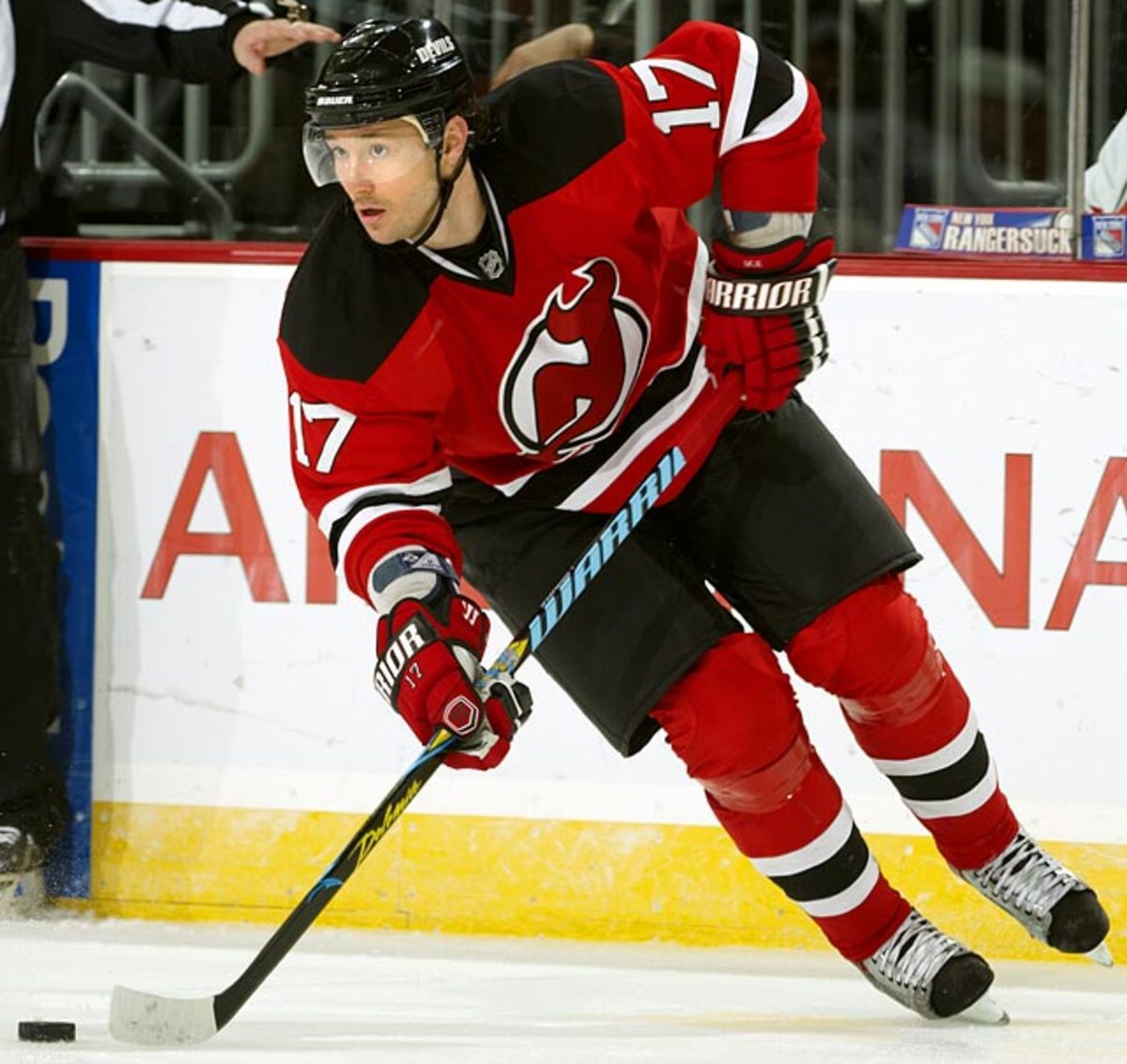
The NHL rejected Ilya Kovalchuk's landmark 17-year, $102 million contract with the New Jersey Devils after it was deemed to circumvent the league's salary cap. Kovalchuk was due to make $98.5 million over the first 11 years of the deal, but the cap hit was just $6 million per season because of how little he would earn over the remaining six years of the contract. Before his trade to New Jersey last February, he turned down Atlanta's offer of $100 million over 12 years ($8.33 million per).
Alex Ovechkin
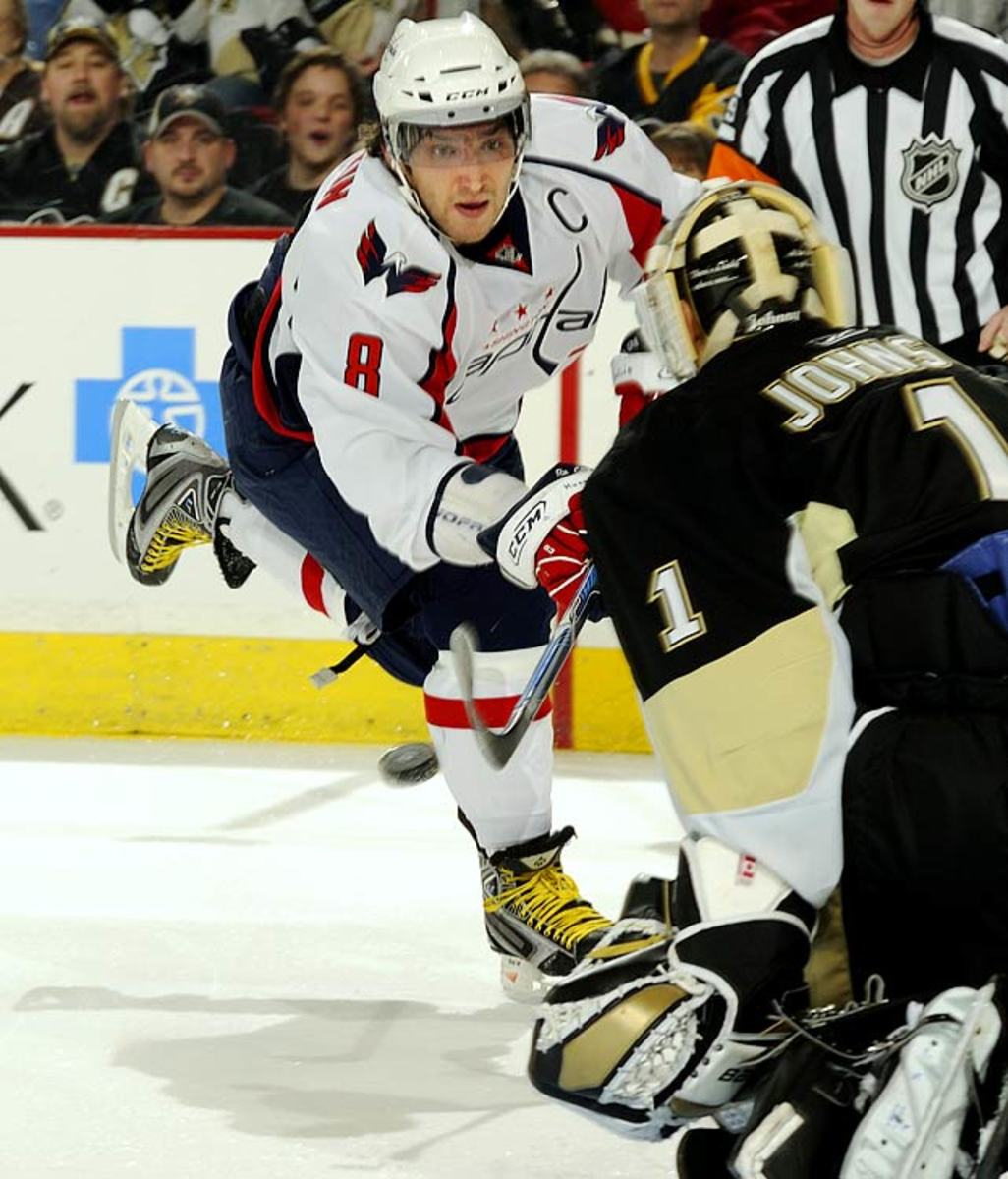
The Capitals kept their superstar off that summer's market by signing him to this contract extension, believed to be the richest deal in league history. It reportedly will increase from $9 million to $10 million per year after the 2013-14 season.
Marian Hossa
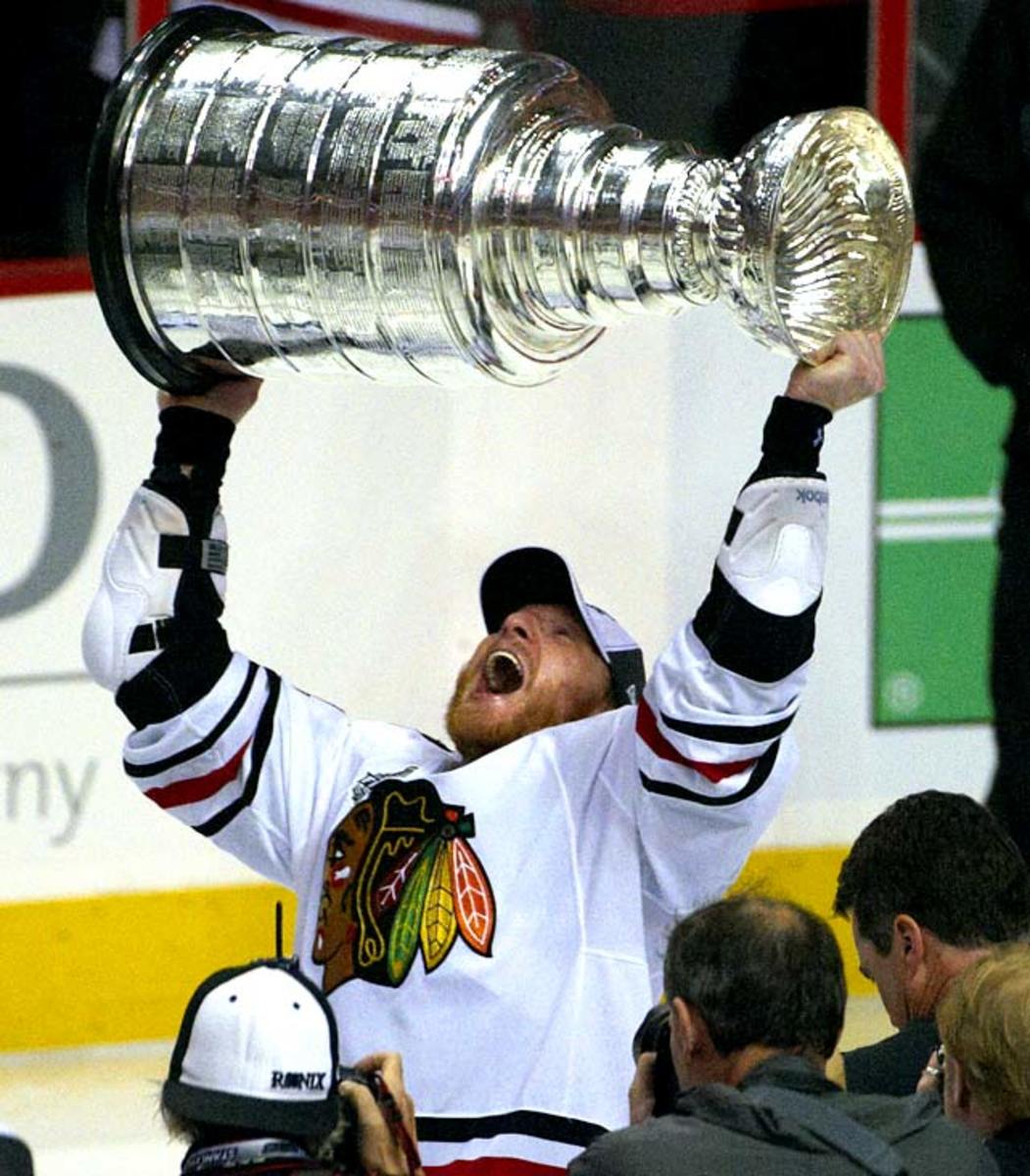
The free agent blockbuster of 2009 ultimately delivered Hossa to the promised land, ending a quest for the Stanley Cup that had taken him from Pittsburgh to Detroit to Chicago. The deal, which pays Hossa $7.9 million annually for the first seven years, prompted an investigation by the NHL into whether it illegally circumvented the salary cap.
Duncan Keith
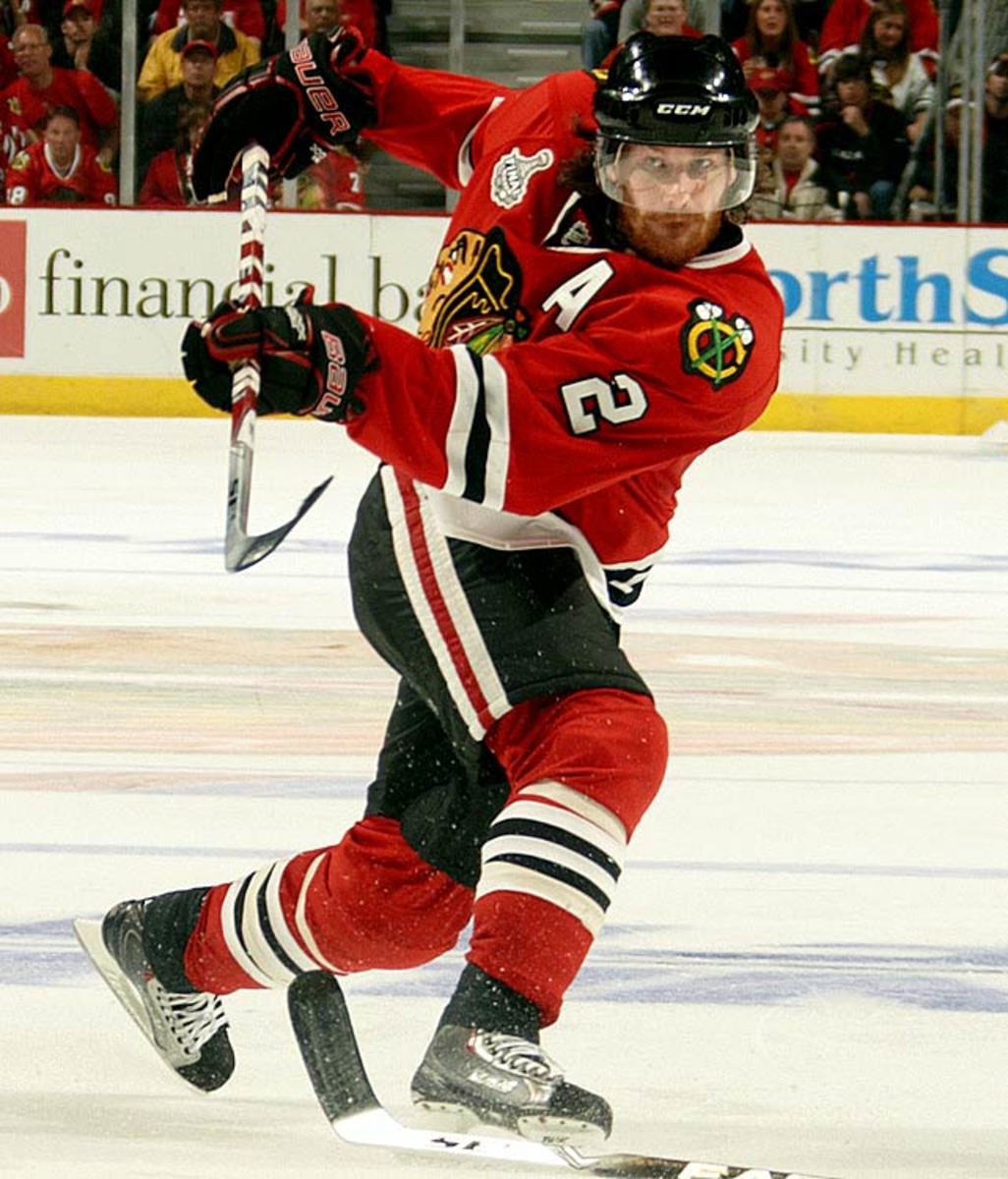
Keith's extension is the richest deal in Blackhawks' history. His initial return on their investment was winning the Norris Trophy as the NHL's top defenseman while helping Chicago end its 49-year Stanley Cup drought. Keith's teammates Jonathan Toews and Patrick Kane were also signed to five-year extensions worth $31.5 million apiece ($6.3 million per).
Henrik Zetterberg
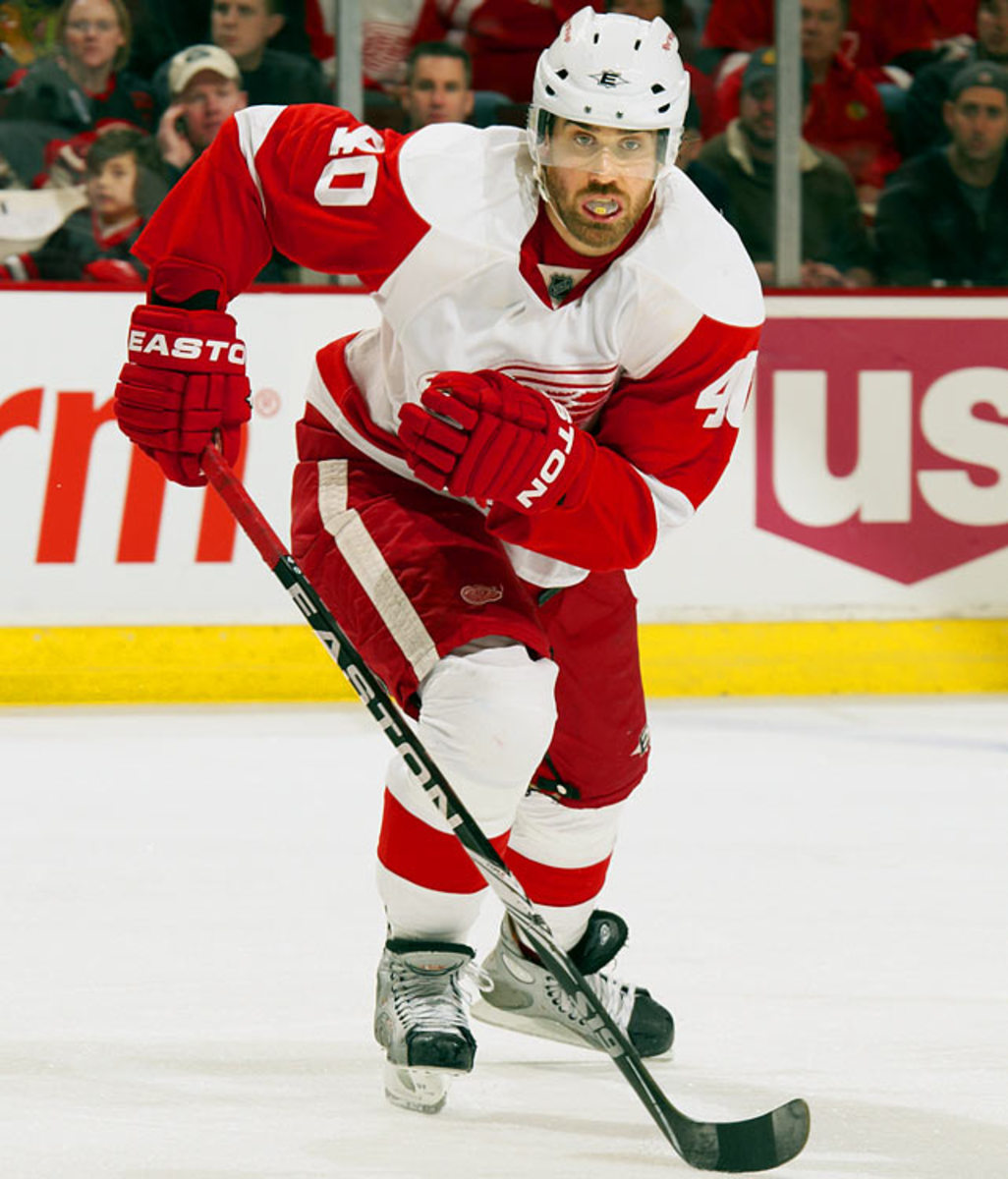
Approaching unrestricted free agency that summer, Zetterberg was signed in late January after he agreed to remain a Red Wing for life. The contract pays the Swedish center as much as $7.75 million per season from 2010 to 2017 before shrinking to as little as $1 million in its final year (2020-21).
Johan Franzen
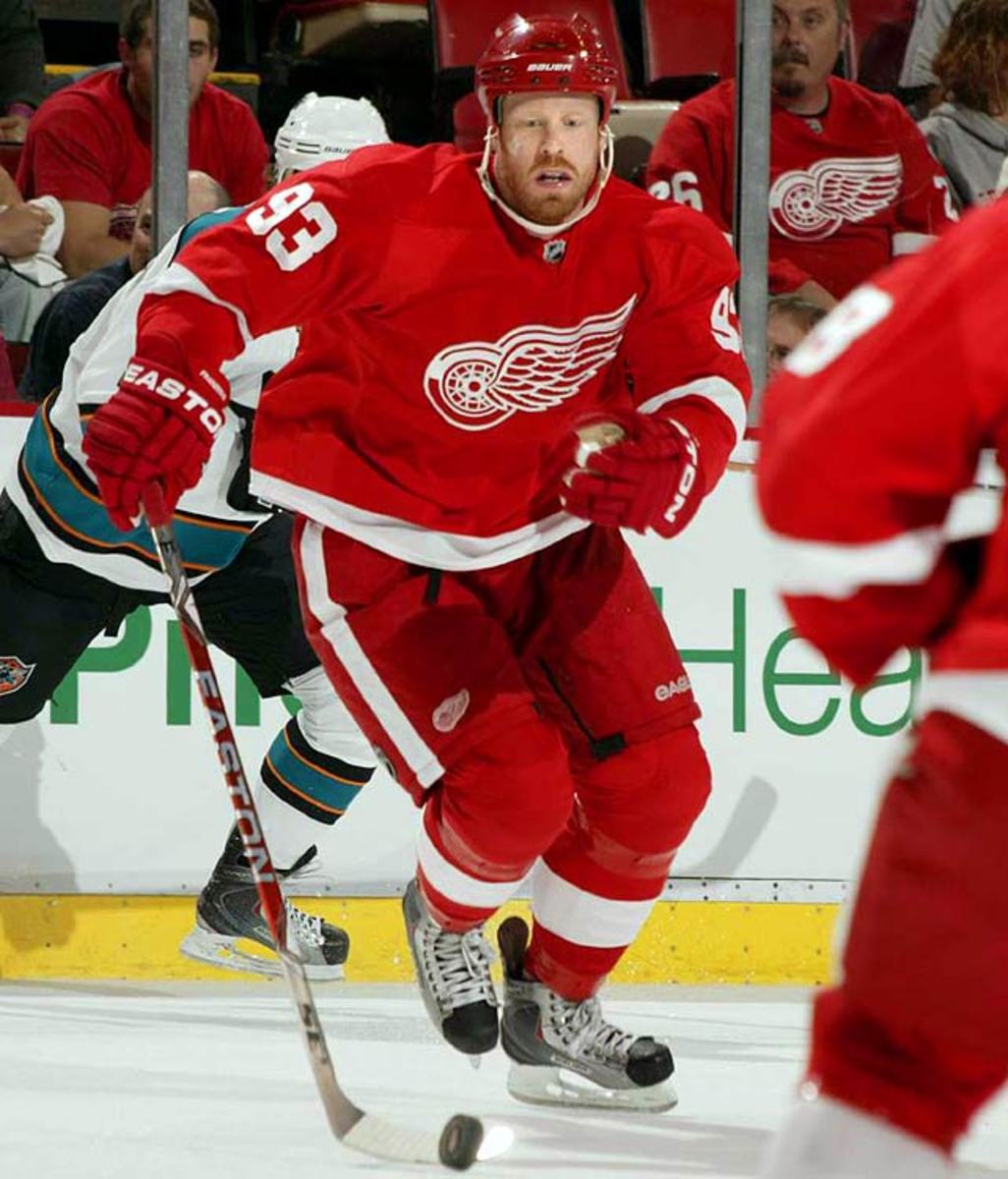
Franzen was kept off the market by the deal he signed in April 2009. His extension (the second-longest contract in Red Wings history) pays him between $5 and $5.5 million during the first seven years.
Roberto Luongo
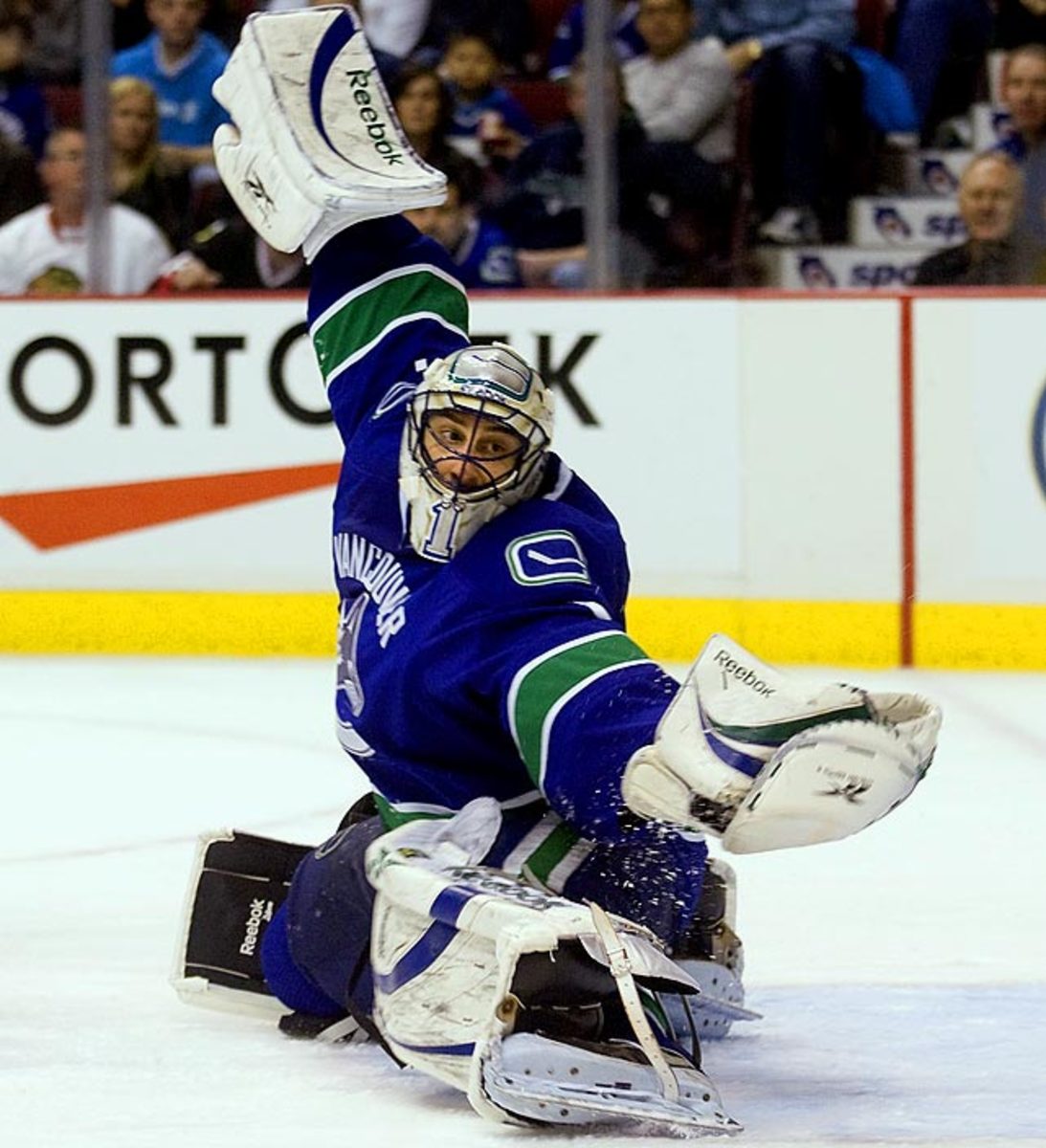
The Canucks kept their captain and franchise netminder off the market by presumably locking him up for the rest of his career. Luongo's new deal will pay him $10 million for 2010-11, but has a lower cap hit than his four-year, $27 million contract that expired at the end of last season. During the final two seasons of the contract, it will pay him $1 million.
Chris Pronger
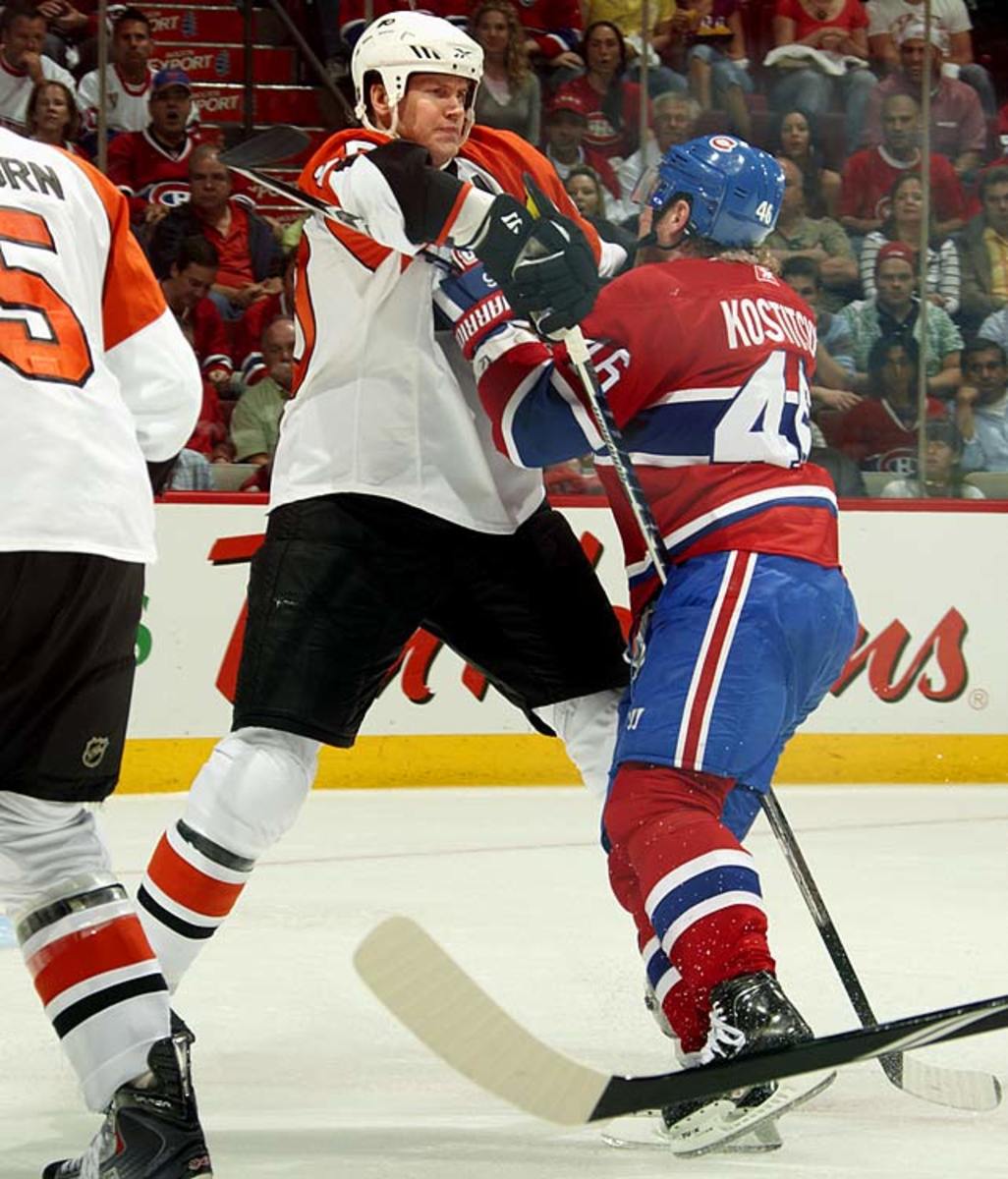
After acquiring the bruising defenseman in a draft day trade with Anaheim, the Flyers extended Pronger's contract through 2016-17. The extension kicks in for the 2010-11 season, paying him $7.6 million for the first two years of the contract, $7.2 million for 2012-13, and $7 million for 2013-14 before his paycheck shrinks to $525,000 during each of the final two seasons. "I am very excited to be able to retire a Philadelphia Flyer and I am looking forward to many years with the Flyers logo on my chest," Pronger said in a statement at the time. He will be 42 when the contract expires.
Vincent Lecavalier
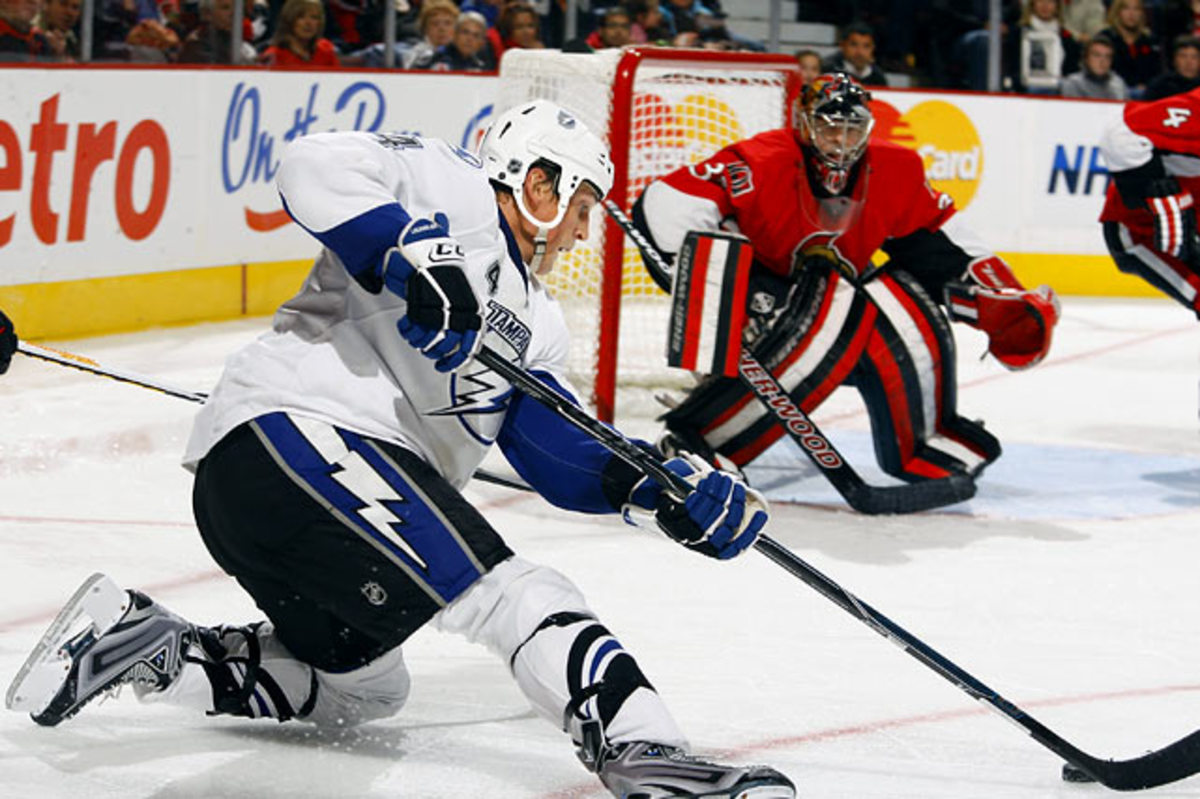
New ownership -- which has since sold the franchise-- gave the team's all-time leading scorer this enormous extension in July 2008. Unfortunately, Lecavalier's performance has declined and the deal has made him very difficult to trade.
Brian Campbell
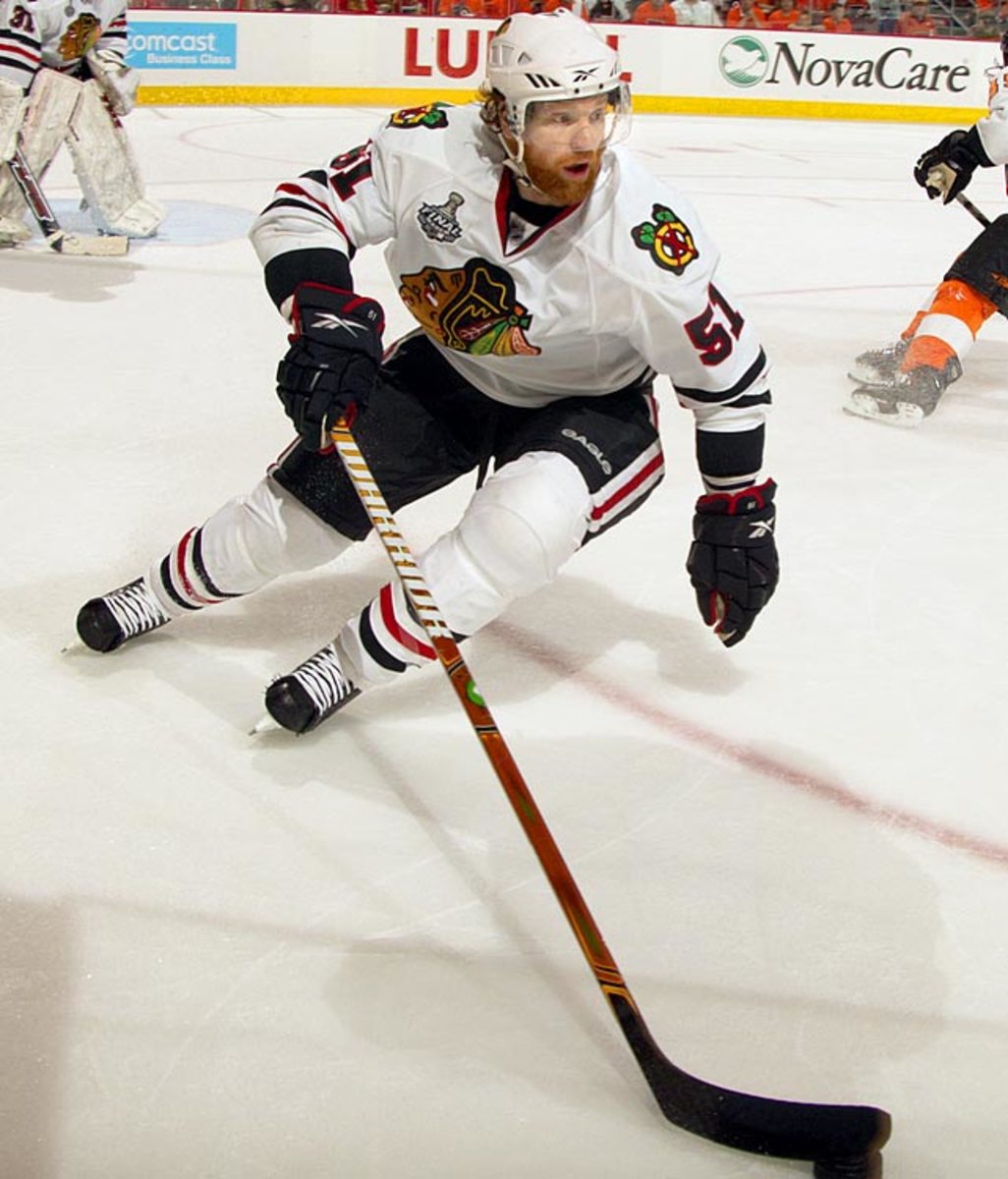
A free agent signing that the Blackhawks now regret -- along with the $22.4 million over four years ($5.6 per) they gave goaltender Cristobal Huet that summer. The two deals are at the heart of the team's current salary-cutting moves that have cost it Dustin Byfuglien, Kris Versteeg, Andrew Ladd and other members of the Cup champion's supporting cast.
Wade Redden
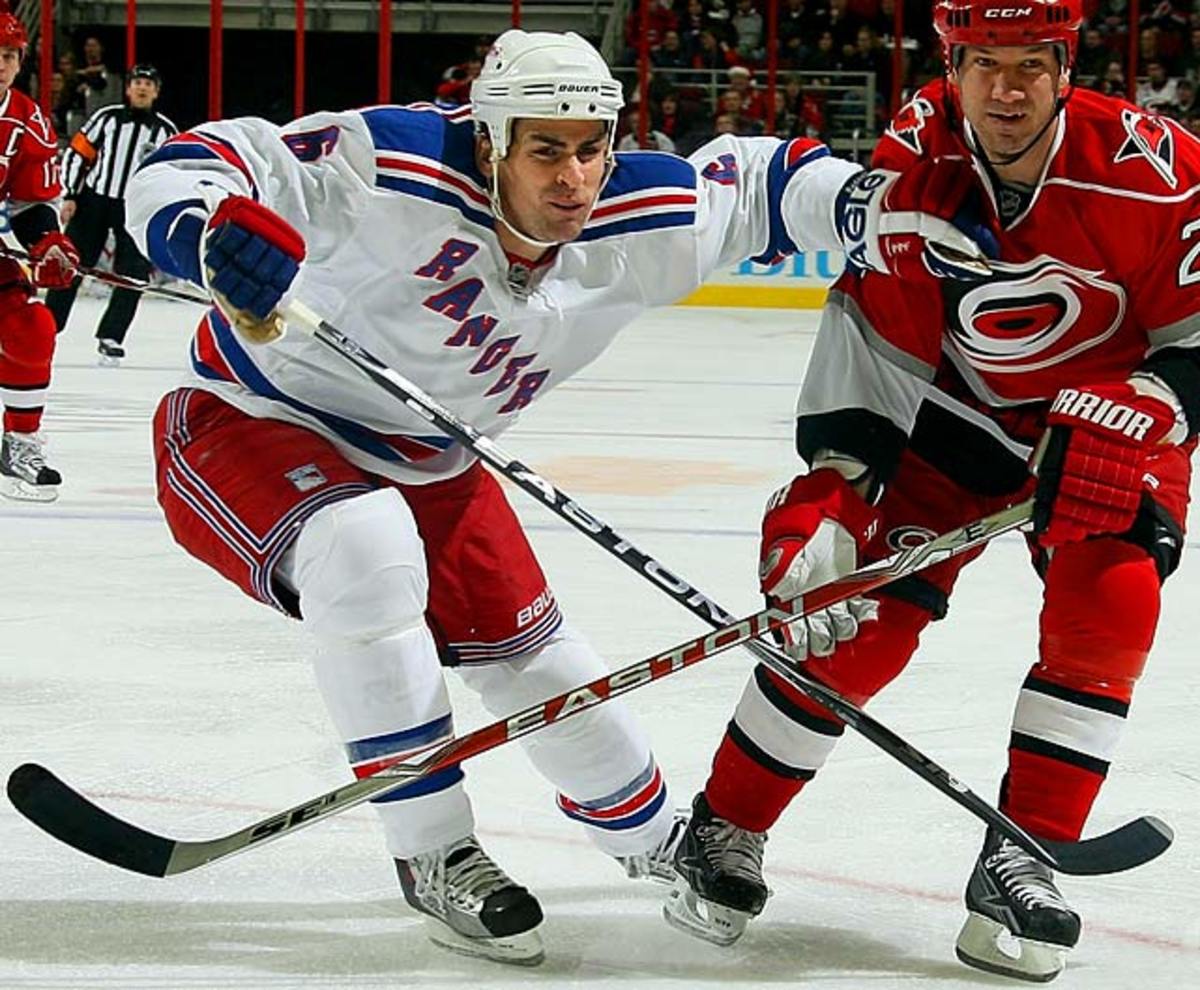
One of the Rangers' most inexplicable deals, but not the worst, the defenseman was 31 and fading when he arrived from Ottawa. He soon became a target of Madison Square Garden boo birds. Redden's contract has also made him one of the biggest NHL free agent busts. (See: Free Agent Busts link below)
Sidney Crosby
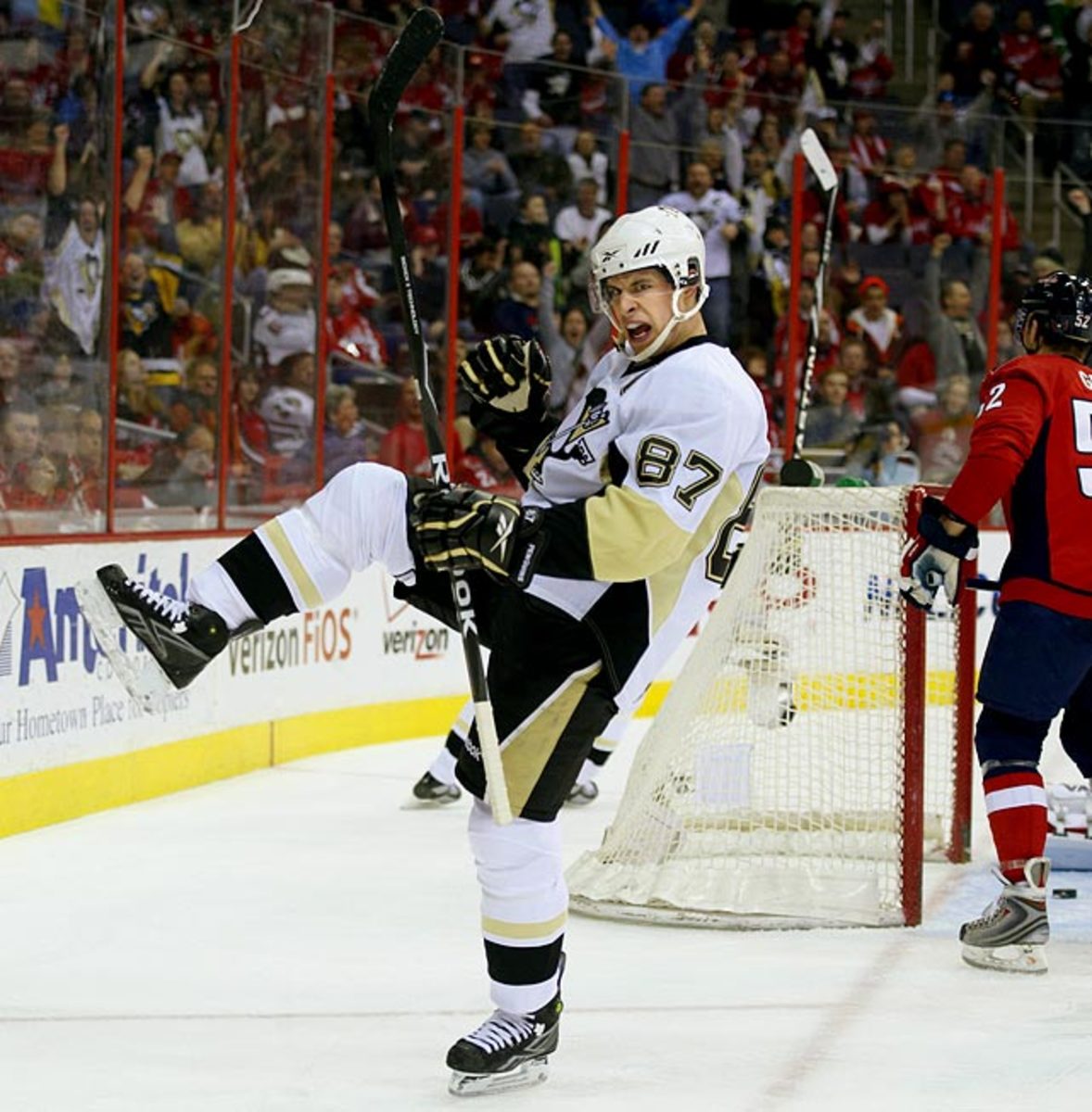
After his first two seasons, during which he won the Art Ross (scoring), Hart and Pearson trophies (MVP), the Penguins gave their superstar captain an extension that will keep him off the free agent market until 2013. He'll earn about $9 million per season until 2011-12, with the final year worth $7.5 million.
Danny Briere
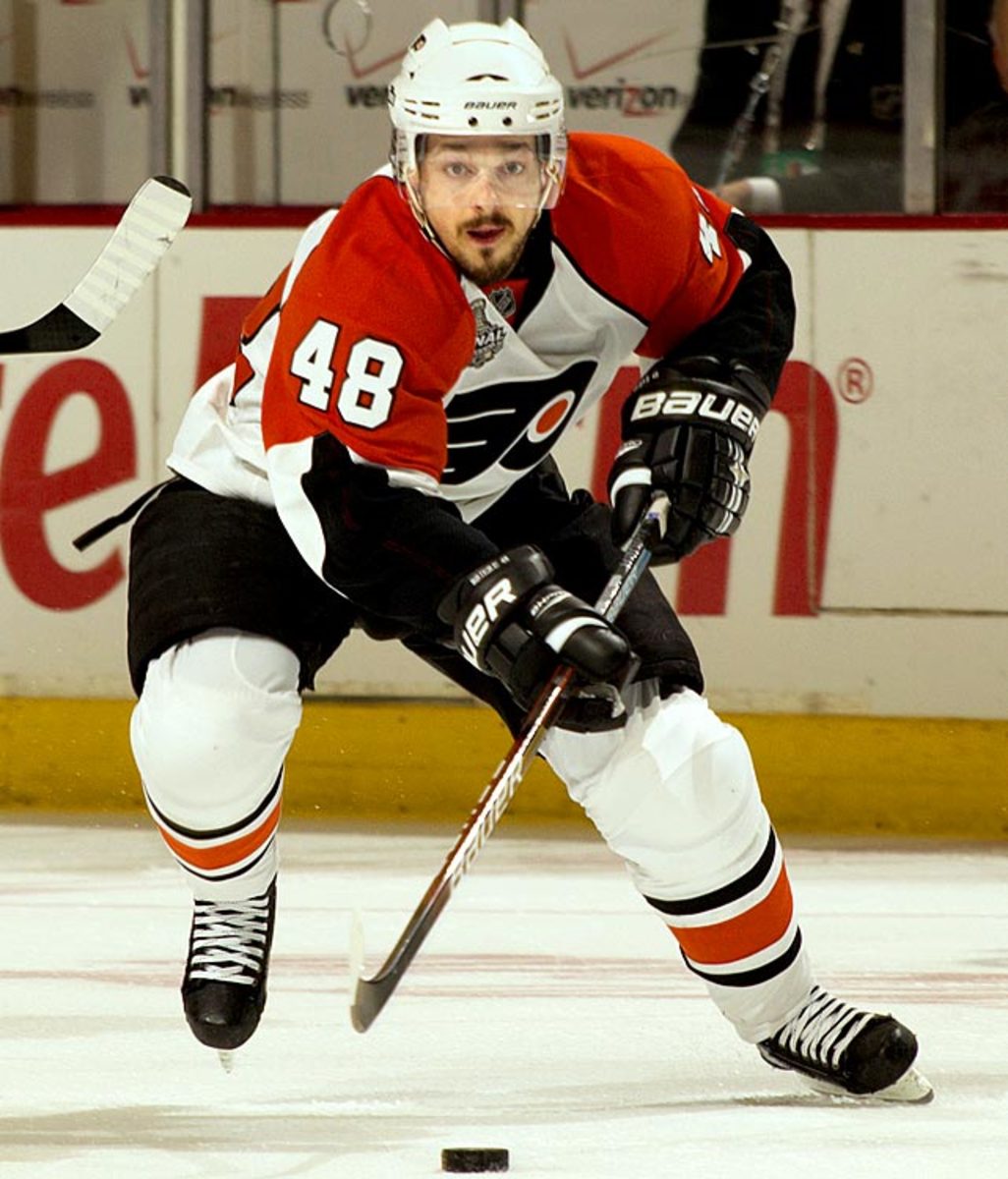
The Flyers outbid several teams for the free-agent forward who was paid $10 million during his first season in Philadelphia. He's coming off the second of two $8 million seasons and is due to receive $7 million per until 2013. Briere will be paid as little $3 million in 2013-14 and $2 million in the final year of the contract.
Scott Gomez
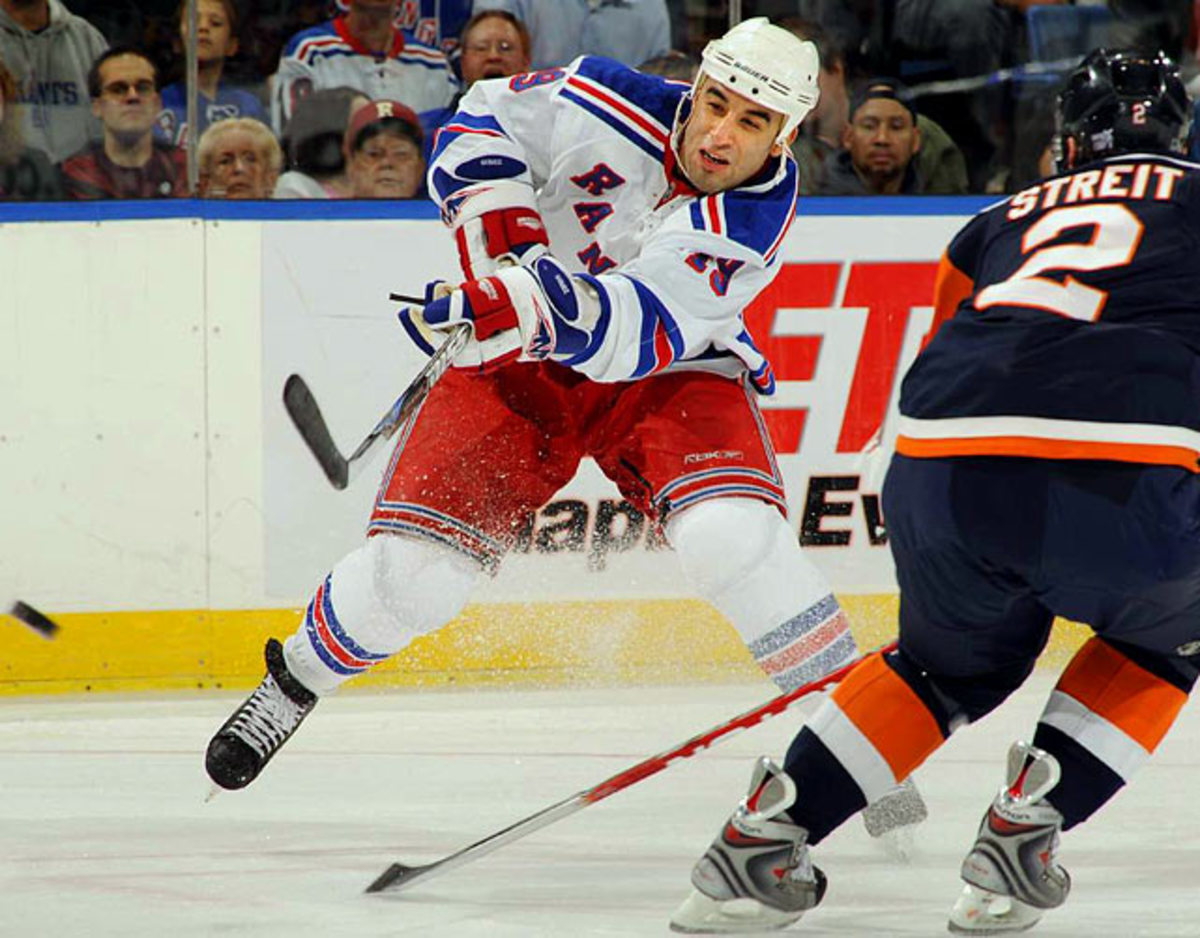
The Rangers broke the bank for this free agent center who was a big name only in relation to that year's relatively modest crop. He struggled on Broadway for two seasons before being traded to Montreal in June 2009. (See: Free Agent Busts link below)
Mike Richards
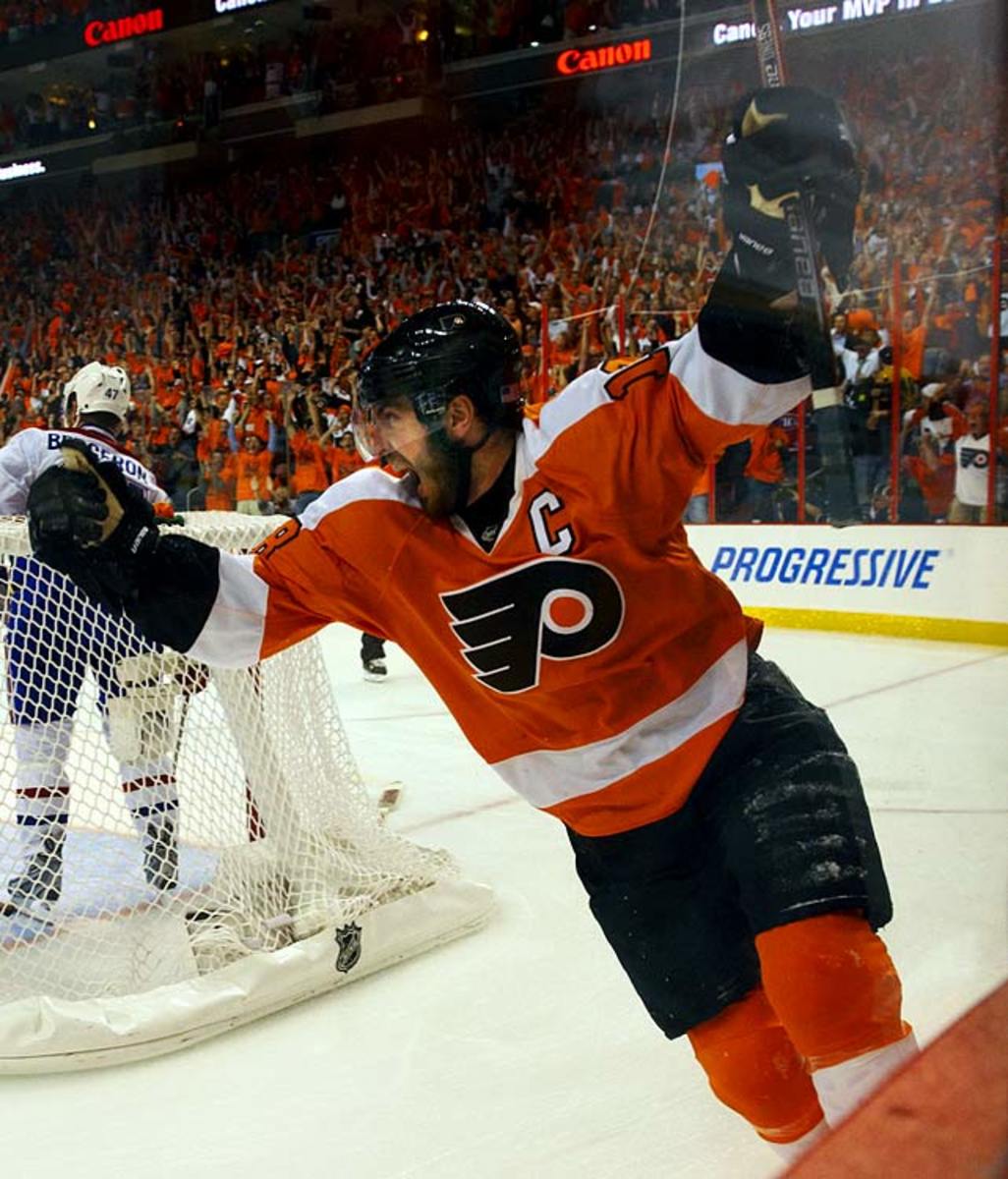
In December, the Flyers gave their first-round pick of 2003 an almost lifetime extension, boosting the then-22-year-old center's salary from a modest $940,000. "Mike has become an integral part of our core group and we are extremely happy to have him under contract long term," GM Paul Holmgren said at the time of the signing. "We believe that he will continue to grow as a player and as a leader."
Rick DiPietro
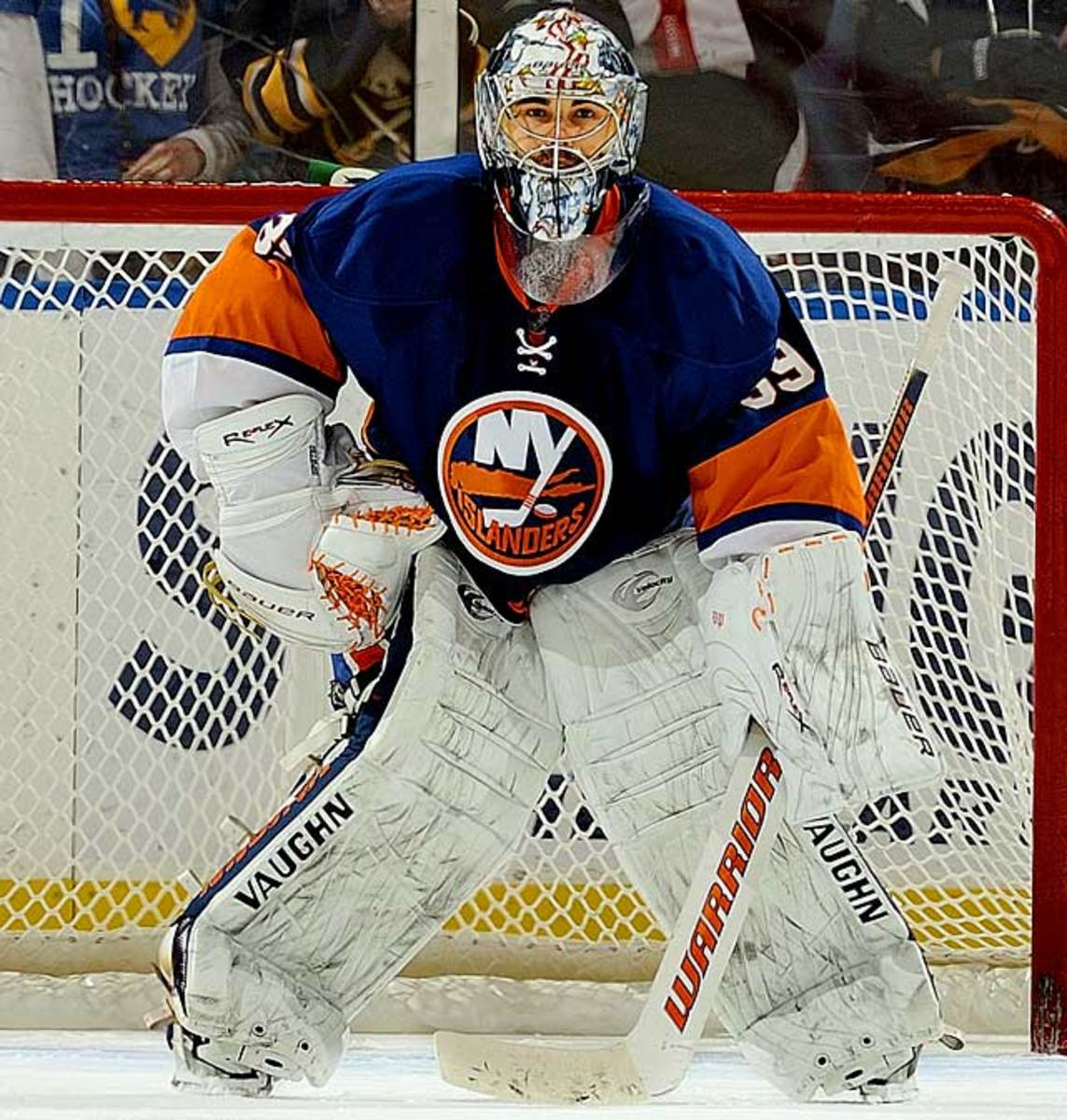
It's not so much the annual average as the length of contract that made this deal so absurd. Though the Isles' highly-touted No. 1 overall pick of 2000 had yet to reach his potential, he turned the deal into an albatross by developing hip and knee problems that have required surgery, limited his playing time, and put his career in doubt.
Bobby Holik
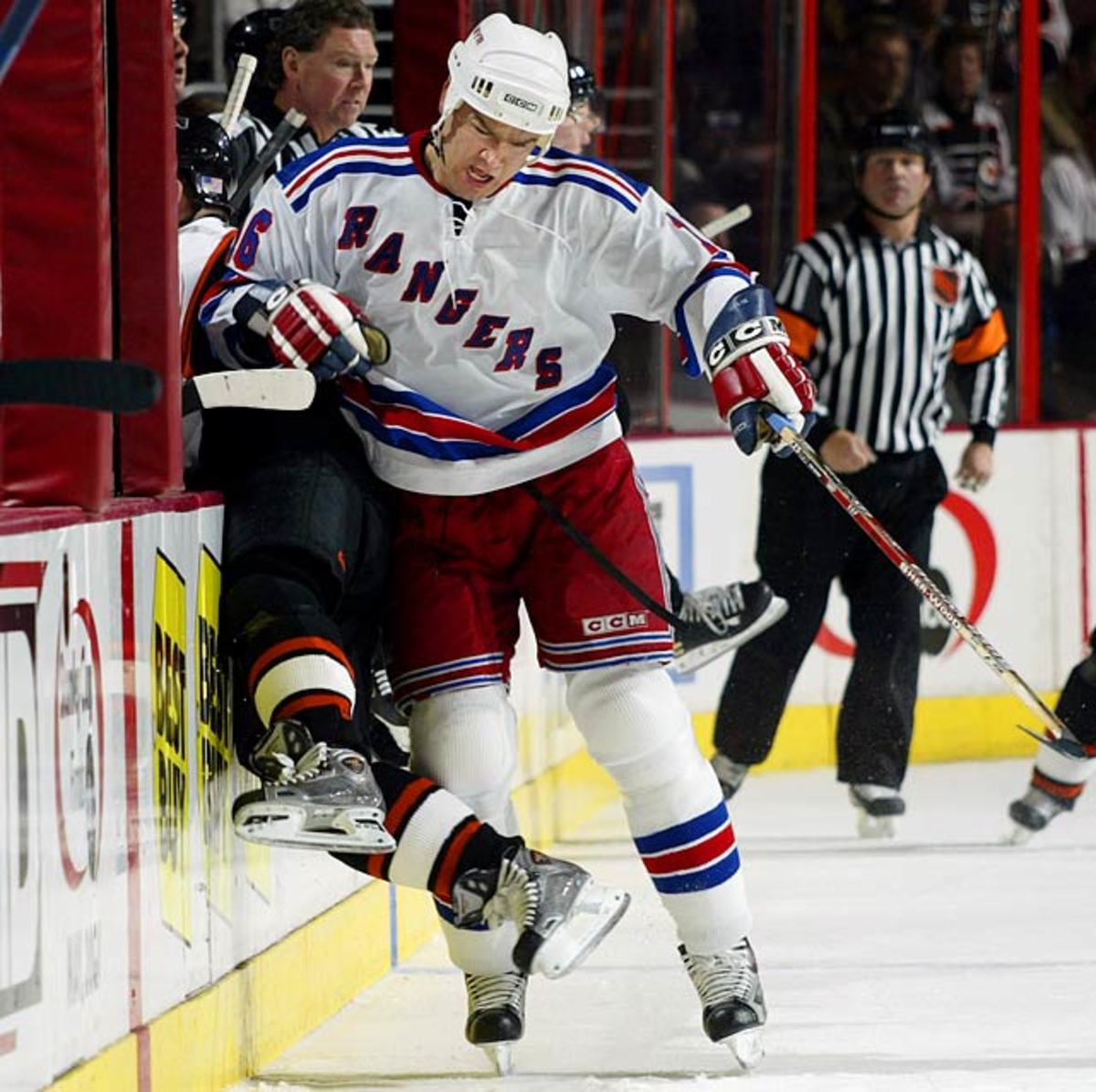
Easily one of the most foolhardy contracts ever awarded (see: Free Agent Busts link below), the Rangers paid Holik money for a grand total of 41 goals and 91 points over two seasons before buying out the final three years of the deal. By the end of the term, Holik was on his way out of the NHL.
Alexei Yashin
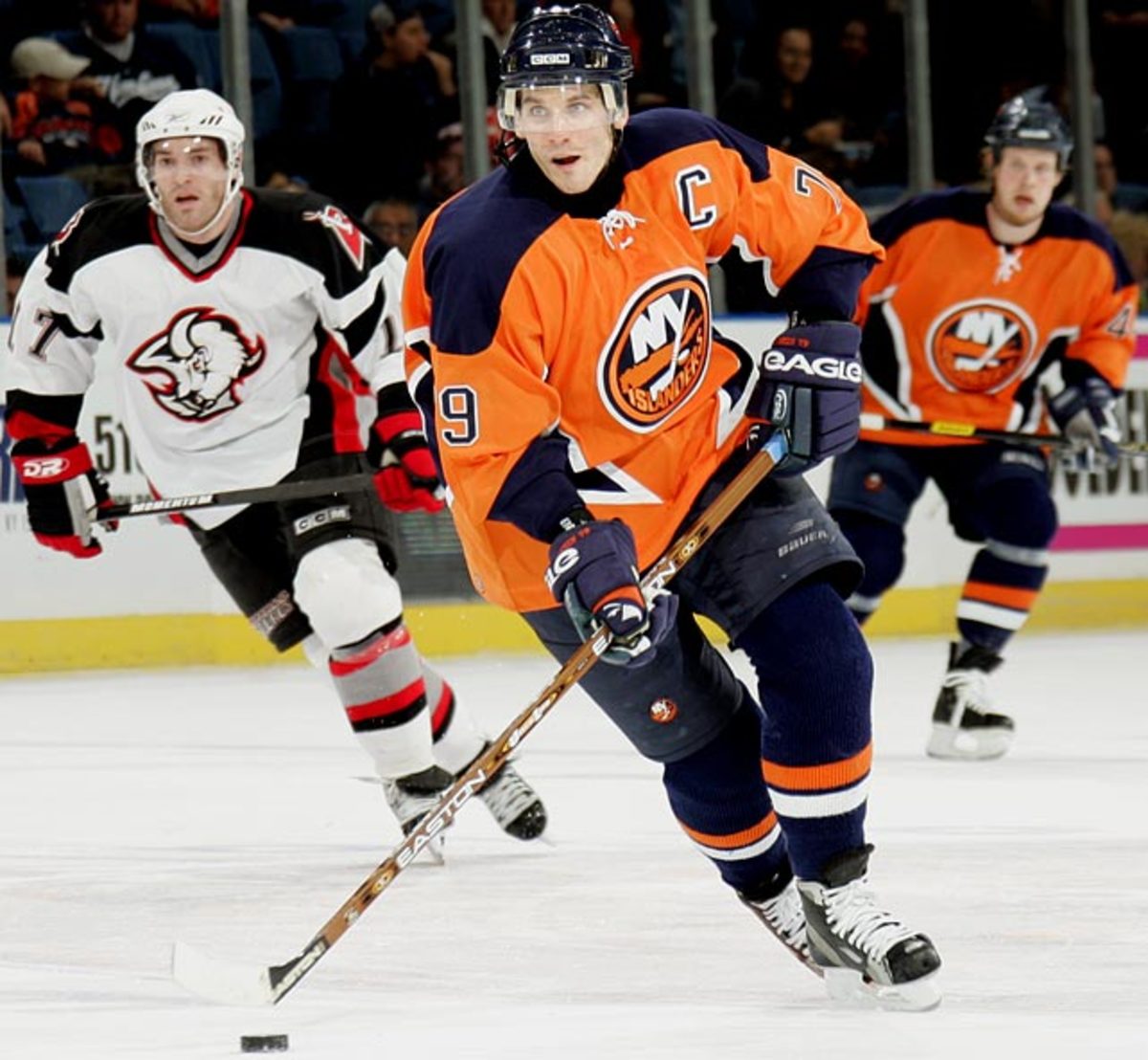
After acquiring the disgruntled Russian center from Ottawa in a June trade for Zdeno Chara, Bill Muckalt and a first-round pick (Jason Spezza), the Islanders rocked the NHL by signing Yashin to a deal that is often credited with starting a trend. Seeking a marquee star, they instead got maddening inconsistency and ended up buying out the final four years of the contract for $17.63 million -- a cap hit of $2.2 million per season for eight years -- in June 2007.
Jaromir Jagr
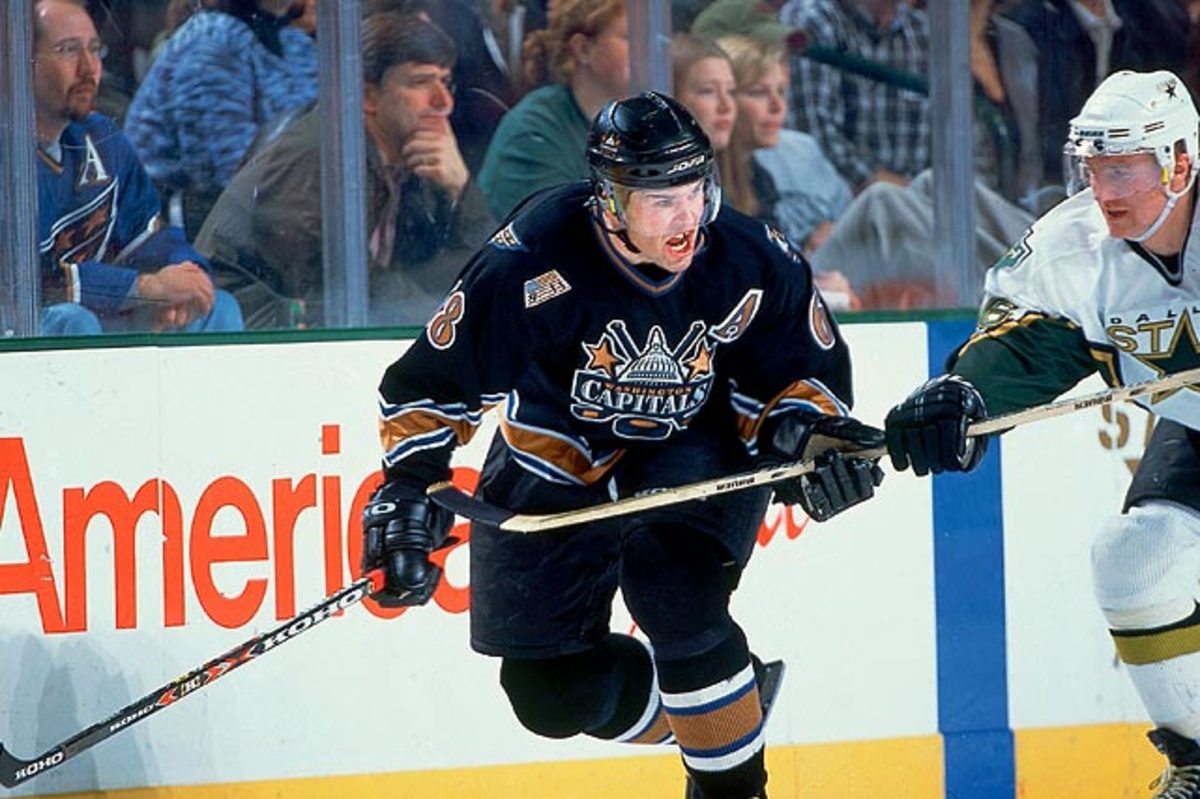
After acquiring the dynamic scoring winger from the Penguins in 2001, the Capitals signed him to an extension -- the largest contract in the NHL at the time -- that they ultimately lived to regret. When Jagr underperformed (the Caps made the playoffs once during his tenure) and created friction in the dressing room, they traded him to the Rangers in January 2004 and were stuck paying between $4 million and $4.5 million on each of the deal's remaining years.
Eric Lindros
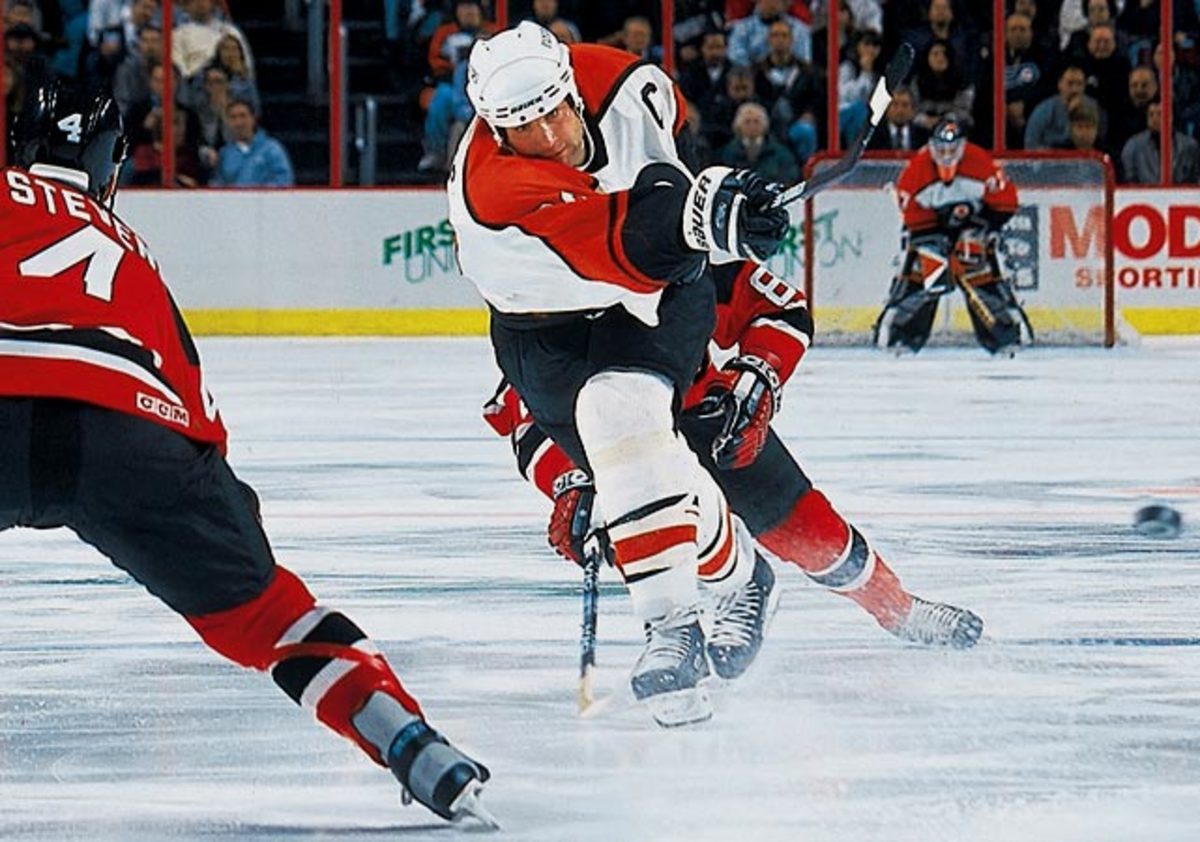
With their superstar center in the final year of his original six-year contract worth $20 million, the Flyers gave Lindros, 24, an extension that made him and Anaheim's Paul Kariya the league's highest-paid players. The Flyers originally offered five years at up to $50 million (including incentives), but Lindros's agent -- his notoriously difficult father, Carl -- took the shorter deal because he thought the free agent market was going to skyrocket in a year or two.
Wayne Gretzky
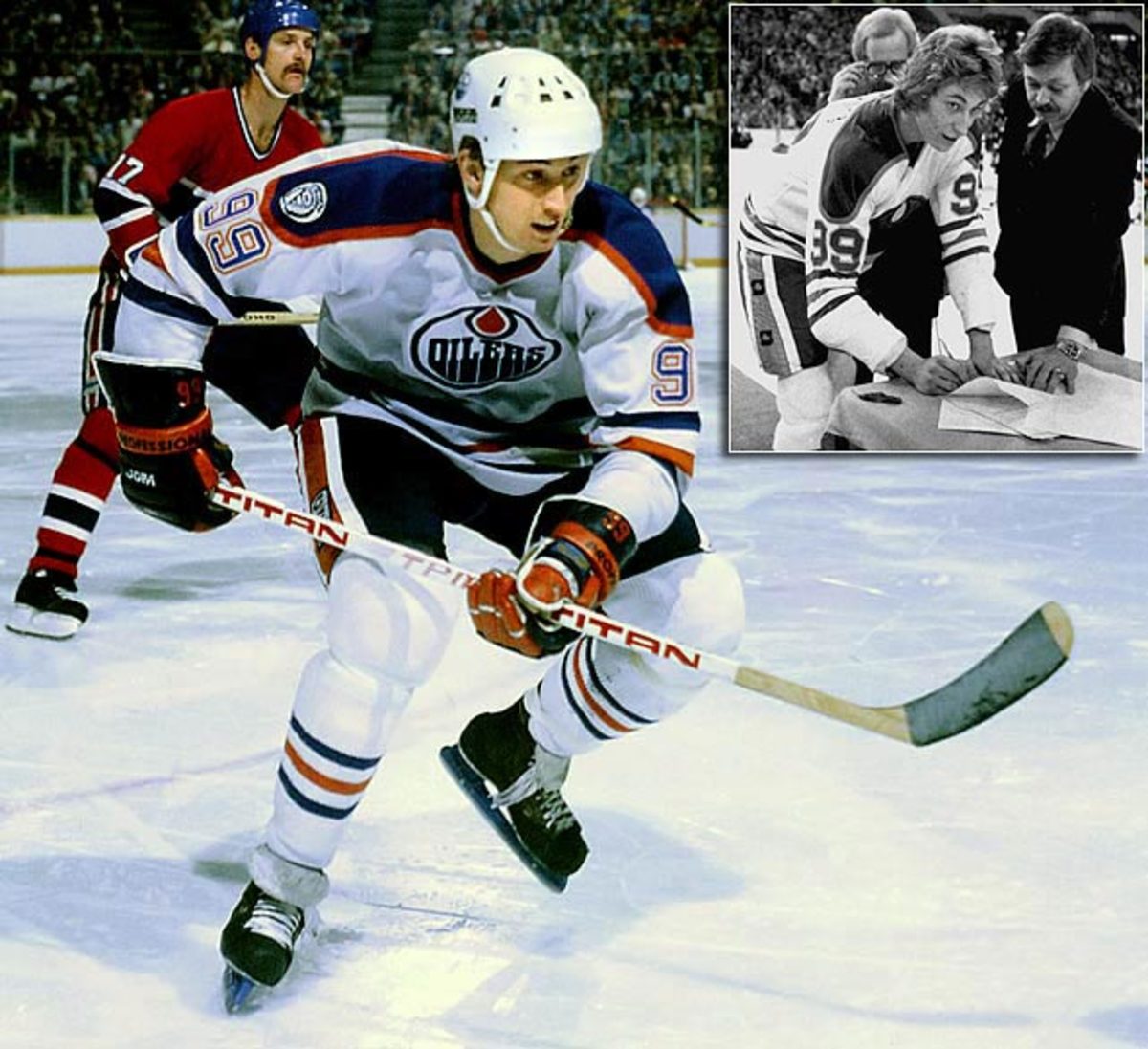
The Great One's first big contract, signed on his 18th birthday -- after he was sold by the WHA's Indianapolis Racers -- was a personal services deal with Oilers owner Peter Pocklington designed to keep Gretzky out of a draft pool when the WHA collapsed and some of its teams were absorbed by the NHL. The pact made Gretzky a great bargain during his record-shattering years in Edmonton. After Gretzky was traded to the Los Angeles in 1988, Kings owner Bruce McNall gave him a new three-year deal worth a reported $25.5 million.
